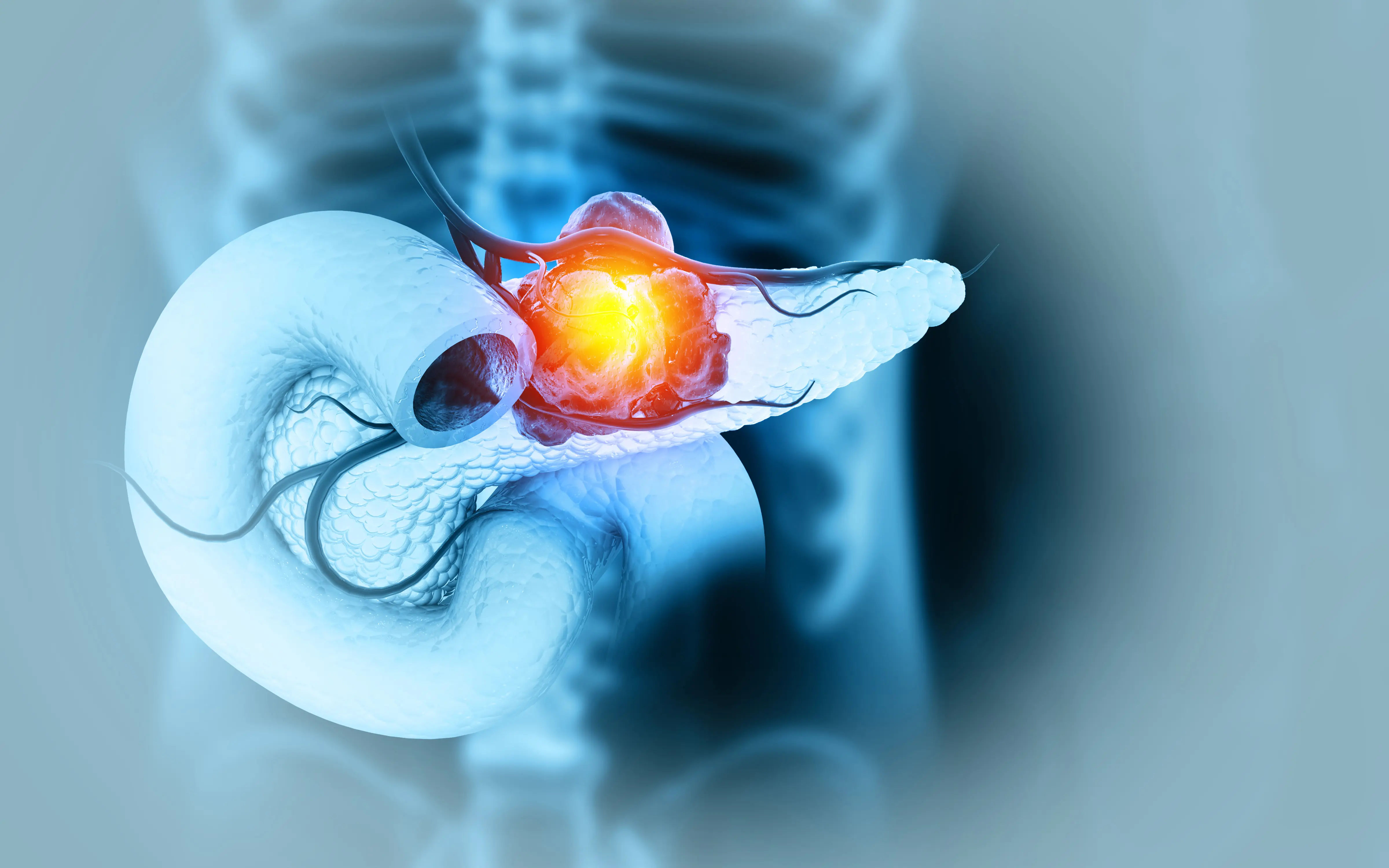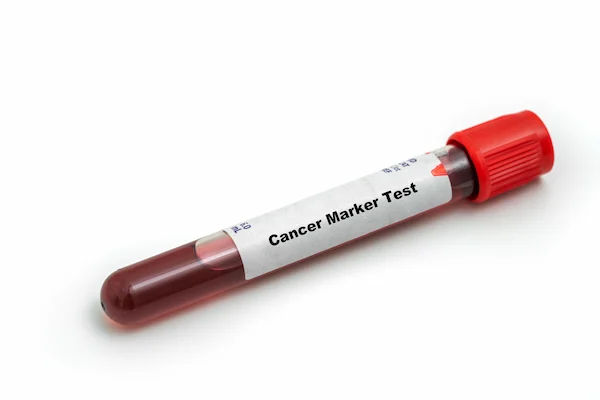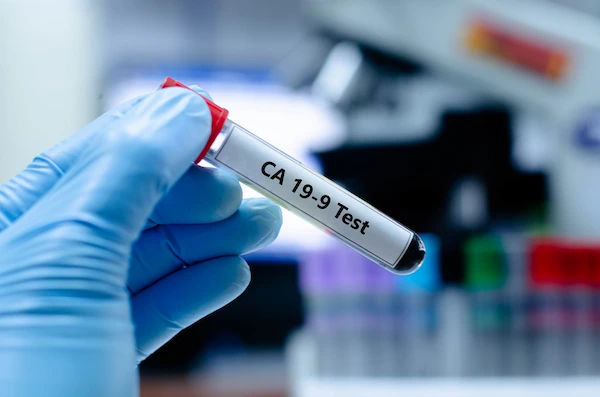Cancer Screening for Women: The Most Important Blood Tests to Book
Stay proactive with your health. Discover the most important blood tests for cancer screening in women, including tumor markers like CA 125, CA 15-3, and CEA. Learn what they detect, who should get tested, and why these tests are a vital part of your preventive care plan.

Written by Dr. Rohinipriyanka Pondugula
Reviewed by Dr. Siri Nallapu MBBS
Last updated on 10th Sep, 2025

If you’re a woman between the ages of 25 and 55 and prioritising your health, regular cancer screening should be part of your wellness routine. Cancer screening for women involves specific tests that can detect cancer or its warning signs early, before symptoms even appear. In many cases, early detection significantly improves the chances of successful treatment and recovery. Among the many methods available, blood tests play a key role in screening for certain types of female cancers. These include cancers of the breast, ovaries, cervix, uterus, and even thyroid, types that often show subtle or no symptoms in early stages. This guide offers a curated overview of the most important blood test for female cancer, including what they detect, when they’re recommended, and how Apollo 24|7 makes booking them easy and convenient.
Why Cancer Screening Matters for Women?
Women face unique health challenges across different life stages, puberty, pregnancy, menopause, and with hormonal shifts come associated cancer risks. Breast and cervical cancer are the most common, but uterine, ovarian, and thyroid cancers are also on the rise in Indian women, especially due to factors like lifestyle changes, delayed childbearing, or family history. The key to improving outcomes lies in catching cancer early. Most cancers, when diagnosed at an early stage, are far more treatable and less likely to require aggressive intervention. A simple set of blood tests can often flag warning signs, helping you and your doctor take informed steps forward.
Understanding Blood Test for Female Cancer
Unlike imaging tests, blood tests assess what’s happening at a biochemical or cellular level. They can identify tumour markers, proteins or substances that cancer cells produce, or reveal organ dysfunction that may suggest a cancerous process. While blood tests don’t always provide a definitive diagnosis, they are essential tools in routine screening, especially for women at risk due to age, family history, or persistent symptoms like fatigue, weight loss, or abnormal bleeding. Here are the most important blood tests women should consider as part of a cancer screening panel:
1. CA 125 Test – For Ovarian Cancer Detection
- What it does: Measures the level of Cancer Antigen 125 (CA 125), which is often elevated in ovarian cancer.
- Who should take it: Women with a family history of ovarian or breast cancer, or symptoms like abdominal bloating, pelvic pain, or irregular periods.
- Why it matters: Ovarian cancer often goes undiagnosed until it spreads. CA 125 helps detect abnormalities early.
2. CA 15.3 Test – Breast Cancer Marker
- What it does: Measures the amount of CA 15.3 in blood, which is often higher in women with breast cancer.
- Who should take it: Women with a family history of breast cancer or undergoing monitoring after a breast cancer diagnosis.
- Why it matters: Helps assess response to treatment and identify recurrence in diagnosed cases.
3. CA 19.9 Test – For Pancreatic or Gastrointestinal Cancer
- What it does: Detects Cancer Antigen 19.9, a marker often elevated in gastrointestinal tract cancers.
- Who should take it: Women with symptoms like unexplained jaundice, digestive issues, or abdominal discomfort.
- Why it matters: Though less specific, it adds value to broader cancer screening panels.
4. BRCA Gene Blood Test – Genetic Risk for Breast & Ovarian Cancer
- What it does: A DNA-based test that checks for mutations in BRCA1 and BRCA2 genes linked to hereditary breast and ovarian cancer.
- Who should take it: Women with family members diagnosed with breast or ovarian cancer under age 50.
- Why it matters: A positive result helps you take preventive actions like increased monitoring or lifestyle changes.
5. Complete Cancer Screening Packages for Women
Instead of booking tests separately, consider comprehensive screening panels that combine all relevant blood tests.
Apollo Cancer Screening for Women - Recommended Packages:
- Apollo Cancer Checkup Essential – Female: Designed for women, this essential screening package includes 37 tests that assess overall wellness and check for early markers of breast, ovarian, and other cancers. Suitable for annual health reviews.
- Apollo Cancer Checkup Advance – Female: This comprehensive screening set covers 49 tests for women, including markers for breast, cervical, and ovarian cancers. Suitable for women with symptoms or a known family history of cancer.
- Apollo Cancer Checkup Ultra – Female: The most detailed female-centric cancer screening package with 51 tests, targeting all major female cancers and general health indicators. Ideal for proactive monitoring and those at high risk.
When Should You Start Screening?
While general screening guidelines vary, here’s a simplified age-based approach for women:
If you have risk factors like a strong family history, irregular bleeding, breast lumps, or chronic fatigue, consider starting earlier and consulting a gynaecologist or oncologist.
Symptoms That Should Prompt Cancer Testing
You do not always need to wait for symptoms to begin screening. However, if you notice any of the following, it’s wise to act quickly:
- Unexplained weight loss
- Changes in menstrual cycle
- Breast lumps or discharge
- Persistent bloating or abdominal pain
- Abnormal bleeding or spotting between periods
- Difficulty swallowing or chronic fatigue
Remember, most of these symptoms have non-cancerous causes, but testing helps rule out serious conditions.
How to Prepare for a Cancer Blood Test?
Steps to prepare for a cancer blood test are:
- Fasting: Some tests may require you to fast. Always confirm with your lab team.
- Medications: Inform your doctor about any ongoing medicines, including hormonal therapies or supplements.
- Cycle Timing: If hormone-related tests are involved, your doctor may schedule the test based on your menstrual cycle.
Getting Your Results & What They Mean
Most test results are available within 24 to 48 hours. Your doctor will interpret the values, compare them to normal reference ranges, and assess if further evaluation (like imaging or biopsy) is needed. It’s important not to panic if a result is slightly abnormal, many factors like infection or benign growths can also cause changes. The goal of screening is to catch potential issues early, not to cause anxiety.
Book Your Cancer Screening with Apollo 24|7
Apollo 24|7 makes cancer screening for women simple, affordable, and private. Whether you want to book individual tests like the CA 125 or CEA, or a complete female wellness panel, Apollo offers:
- At-home sample collection
- Quick online report access
- Consultations with specialists
- Trusted pathology network across India
Book Cancer Screening Tests Now
Conclusion
Cancer screening for women is not just for those with symptoms or a family history, it’s a proactive way to stay in control of your health. From breast and cervical cancer to thyroid and ovarian risks, blood test for female cancer can help uncover early warning signs and save lives. If you're a woman aged 25 to 55 and want to protect your future health, consider booking a curated screening panel with Apollo 24|7 today. It’s a simple step toward lifelong wellness.
Get Your Symptoms Assessed




